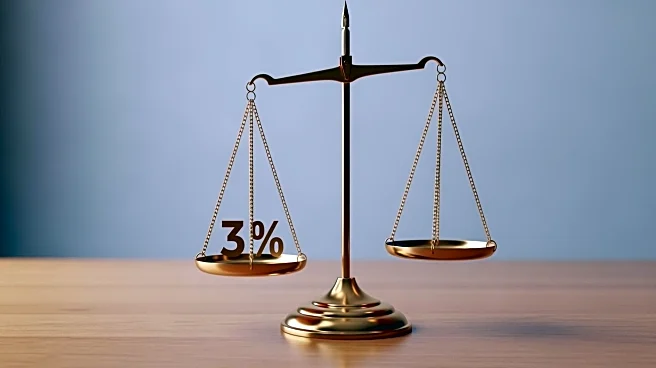What's Happening?
The Bureau of Labor Statistics has released its September consumer price index report, indicating a 3% increase in inflation compared to the previous year. This report marks the first major economic update
since the recent government shutdown. The month-to-month inflation rate showed a slight decrease to 0.2%. Analysts, including NBC News' Brian Cheung and Investopedia editor-in-chief Caleb Silver, have been examining these figures to understand their implications on the broader economy. The report highlights ongoing economic challenges, including the impact of inflation on consumer purchasing power and the potential for further economic adjustments.
Why It's Important?
The increase in inflation is significant as it affects various aspects of the U.S. economy, including consumer spending, interest rates, and overall economic growth. Higher inflation can erode purchasing power, making goods and services more expensive for consumers. This can lead to changes in consumer behavior, potentially slowing economic growth. Additionally, the Federal Reserve may consider adjusting interest rates to manage inflation, which could impact borrowing costs for businesses and individuals. The report's findings are crucial for policymakers, economists, and businesses as they navigate the current economic landscape and plan for future financial strategies.
What's Next?
In response to the inflation report, stakeholders such as the Federal Reserve may consider policy adjustments to stabilize the economy. This could include changes in interest rates to curb inflationary pressures. Businesses might also reassess pricing strategies and cost management to adapt to the changing economic environment. Consumers may need to adjust their spending habits in response to rising prices. The government and economic analysts will likely continue monitoring inflation trends closely to inform future economic policies and decisions.









